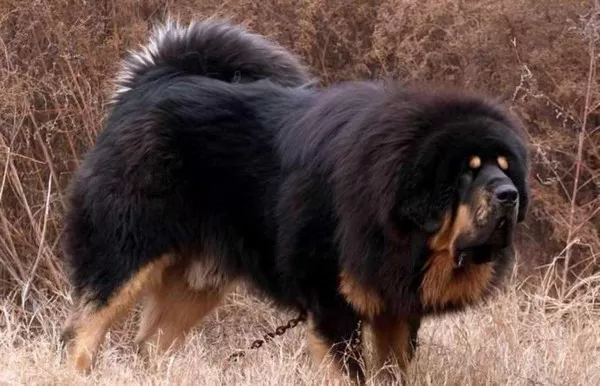Tibetan Mastiffs are a large and powerful breed of dog that originated in Tibet. They were originally bred to protect livestock from predators, and their size and strength make them excellent guard dogs. Tibetan Mastiffs are known for their loyalty, courage, and independence, and they make great family pets for those who have the space and time to care for them properly. One of the most important aspects of caring for a Tibetan Mastiff is ensuring that they get enough sleep. In this article, we will discuss how many hours of sleep a Tibetan Mastiff needs and why it is so important.
The Importance of Sleep for Tibetan Mastiffs
Sleep is essential for all living creatures, and Tibetan Mastiffs are no exception. Getting enough sleep is crucial for their physical and mental well-being. During sleep, the body repairs and regenerates cells, and the brain processes information and consolidates memories. Lack of sleep can lead to a variety of health problems, including obesity, diabetes, heart disease, and depression. In addition, sleep deprivation can lead to behavioral issues such as aggression, anxiety, and hyperactivity in dogs, which can be particularly problematic for a breed as large and powerful as the Tibetan Mastiff.
How Much Sleep Do Tibetan Mastiffs Need?
Tibetan Mastiffs are known for being relatively low-energy dogs, and they do not require as much exercise as some other breeds. However, they do require a significant amount of sleep. On average, a Tibetan Mastiff needs between 12 and 14 hours of sleep per day. This is slightly more than the average dog, which needs between 10 and 12 hours of sleep per day. However, it is important to note that every dog is different, and some Tibetan Mastiffs may require more or less sleep depending on their age, activity level, and health status.
Factors That Affect Tibetan Mastiffs’ Sleep
There are several factors that can affect a Tibetan Mastiff’s sleep patterns. One of the most important factors is age. Puppies and young dogs require more sleep than adult dogs, as their bodies and brains are still developing. Older dogs may also require more sleep, as they may have health issues that affect their energy levels. In addition, a Tibetan Mastiff’s activity level can affect their sleep patterns. Dogs that are more active during the day may need more sleep to recover, while dogs that are less active may need less sleep. Finally, environmental factors such as noise, light, and temperature can also affect a Tibetan Mastiff’s sleep. Dogs that are kept in noisy or brightly-lit environments may have trouble sleeping, while dogs that are kept in a comfortable and quiet environment are more likely to sleep soundly.
The Importance of a Comfortable Sleeping Area for Tibetan Mastiffs
Providing a comfortable sleeping area for your Tibetan Mastiff is essential for their sleep and overall well-being. A comfortable sleeping area should be quiet, dark, and free from distractions. This can be a crate, a dog bed, or a designated area in your home. It should be large enough for your dog to stretch out and turn around comfortably. The sleeping area should also be kept at a comfortable temperature, neither too hot nor too cold. A comfortable sleeping area can help your Tibetan Mastiff feel safe and secure, and can promote restful sleep.
Establishing a Consistent Sleep Schedule for Your Tibetan Mastiff
Establishing a consistent sleep schedule for your Tibetan Mastiff can also help promote restful sleep. Dogs thrive on routine, and having a consistent sleep schedule can help them feel more secure and relaxed. Try to establish a regular bedtime and wake-up time for your dog, and stick to it as closely as possible. This can help regulate your dog’s sleep-wake cycle, and can make it easier for them to fall asleep and wake up at the appropriate times.
How to Help Your Tibetan Mastiff Get Enough Sleep
There are several things you can do to help your Tibetan Mastiff get enough sleep. First and foremost, make sure that your dog is getting enough exercise during the day. While Tibetan Mastiffs do not require as much exercise as some other breeds, they still need regular physical activity to stay healthy and happy. A tired dog is more likely to sleep soundly at night, so make sure that your dog is getting enough exercise during the day. You should also avoid feeding your dog too close to bedtime, as a full stomach can make it difficult for them to sleep. Finally, try to minimize any disruptions to your dog’s sleep, such as loud noises or bright lights.
Conclusion
In conclusion, sleep is essential for the health and well-being of Tibetan Mastiffs. These large and powerful dogs require between 12 and 14 hours of sleep per day, and it is important to ensure that they are getting enough rest. Factors such as age, activity level, and environmental conditions can affect a Tibetan Mastiff’s sleep patterns, so it is important to provide a comfortable and quiet sleeping area and establish a consistent sleep schedule. By following these tips, you can help ensure that your Tibetan Mastiff gets the rest they need to stay healthy and happy.


